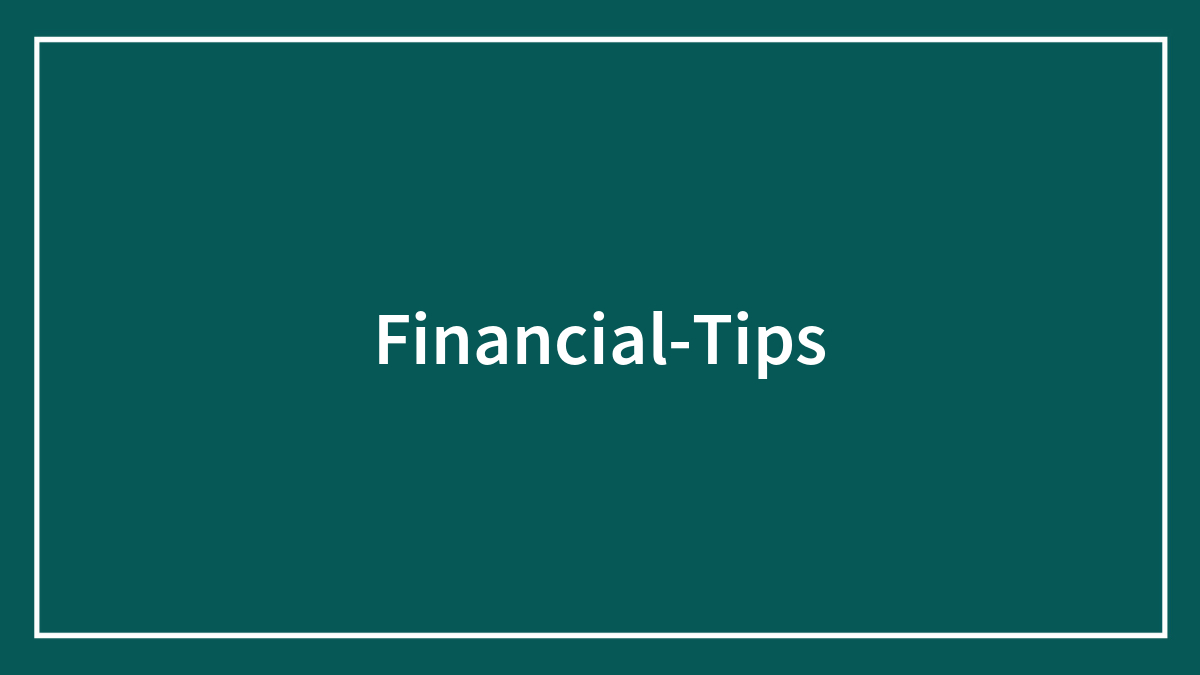Learn how to be frugal, not cheap.
Prioritise your spending instead of spending less on everything.
Spend on the real you — not the imaginary you.
Don't fall into this trap, if it doesn't fit you now – don't buy it.
Don’t make impulse purchases.
If you want to make an impulse purchase, try to wait a week, you might change your mind.
When I'm shopping online, if I see something I like I will add it to the "cart." Then I leave the site for a few days. When I return to the site and look at the cart, I can usually weed out the things that I've realized I really don't need. I still make impulse buys on Amazon, but have saved a lot elsewhere.
Don’t ever cosign a loan.
If the borrower—your friend, family member, significant other, whoever—misses payments, your credit score will take a plunge, the lender can come after you for the money, and it will likely destroy your relationship.
Spend on experiences, not things.
By spending money on experience, you will get emotions and memories that will last.
I'll pay my heating bill to experience not freezing to dearh. Does that count?
Plan for the unexpected.
This is the money to give you peace of mind that if something unexpected crops up – the car break-down or you chip your front tooth - then you’re able to deal with it.
Pay off credit card debt.
It is easy to forget that you are spending your money when you use a credit card. It is easier to keep track of how much you spend when you actually see the amount of money you are spending on something.
Pay them off every month. That way you know whatever you owe is due at the end of the month.
When you get a raise, raise your retirement savings, too.
Every time you get a bump in pay, the first thing you should do is up your automatic transfer to savings, and increase your retirement contributions.
Keep your savings out of your checking account.
If you see you have money in your checking account, you will spend it.
Create a financial calendar.
It is a good way not to forget to pay your quarterly taxes or track your expanses and income.
Focus on your situation.
Don't compare yourself with others. Beware of your financial situation, you’re only competing against yourself.
Get paid what you're worth and spend less than you earn.
Make sure you know what your job is worth in the marketplace. No matter how much or how little you're paid, you'll never get ahead if you spend more than you earn.
Set specific financial goals.
Use dates and numbers in order to complete your goal, be specific.
Learn how to savor.
Appreciate what you have instead of getting more things that might make you happy.
Evaluate purchases by cost per use.
Try to understand whether you need it or not, and how often you will use it, before buying something.
Start with small debts to help you conquer the big ones.
Paying off the little debts can give you the confidence to tackle the larger ones.
Open a savings account at a different bank than where you have your checking account.
If you keep both your accounts at the same bank, it’s easy to transfer money from your savings to your checking.
Review your credit report regularly—and keep an eye on your credit score.
A less-than-stellar credit score has the potential to cost you thousands.
Start a side hustle.
It is a great way to boost your income if you need money.
Discuss finances with your significant other.
It’s a good idea to discuss your finances with your partner to know if you are on the same page about finances.
Check your interest rate.
Paying attention to interest rates will help inform which debt or savings commitments you should focus on.
God... this! Ramsey keeps saying start with the small debts but this is the right way. The math is pretty obvious.
Take a daily money minute.
Take a few minutes a day to check your money transactions. It will help you to detect your weak spots and spend less during the day.
Make salary discussions at your current job about your company’s needs.
When negotiating pay or asking for a raise, emphasize the incredible value you bring to the company.
Find ways to increase your income.
Perhaps you could take a free online course to improve your skills.
Take your values into account when making a purchase.
Carefully consider every purchase you make and ensure it fits with your values.
Have a savings plan.
Resolve to set aside a minimum of 5% of your salary for savings.
Hard to save money when you depend on 100% of your income to pay your living expenses, with zero places to cut back (can't use less electricity when working from home, can't lower your own rent or car insurance or gas prices or food cost when you already buy the cheapest available and go without any "frills" and indulgences!
Invest.
If you're contributing to a retirement plan and a savings account and you can still manage to put some money into other investments, all the better.
I'll add to this that ETFs are the best friend of the inexperienced investor. There is genuine value in letting a financial expert steer the ship. There's plenty of excellent resources online to help pick out ETFs that suit your needs and risk tolerance.
Maximize your employment benefits.
Make sure you are taking advantage of the ones that can save you money by reducing taxes or out-of-pocket expenses.
Have a friend that was a major finance guy for large companies. They will literally create packages that are more expensive for those with lower salaries and push people into family plans who don't need them. And a lot of it winds up correlating with race. No I cannot tell you his name or who he worked for. And if someone has a "well actually" response, it came right from the mouth of a person who left the sector for that exact reason
Draft a financial vision board.
A vision board is a good way to motivate yourself to keep track of your finances.
Understand, it's in your power to have a positive relationship with money.
Your relationship with money is not fixed, it’s one that can evolve over your lifetime. Change the way you think about money to improve your financial wellbeing.
Use budgeting apps.
The apps can help you bring all of your finances into one simple dashboard and make your life easier.
Contribute to a retirement plan.
You should consider contributing to a retirement plan if you can afford to.
Allocate at least 20% of your income toward financial priorities.
It is good to have emergency savings or save money to buy property.
Keep your credit use below 30% of your total available credit.
Otherwise known as your credit utilization rate, you calculate it by dividing the total amount on all of your credit cards by your total available credit. And if you’re using more than 30% of your available credit, it can ding your credit score.
Use the 50/30/20 rule.
Senator Elizabeth Warren’s 50/30/20 rule. The idea is to spend your income in the following way:
– 50% on needs, such as groceries, housing, utilities, and health insurance.
– 30% on wants, such as dining out, shopping, and hobbies.
– 20% on savings, such as emergency savings, a college fund, or a retirement plan.
Banish toxic money thoughts.
Don’t be a fatalist and so harsh on yourself switch to more positive mantras and take action.
Pay attention to fees.
Stick with low-cost index funds, because they might cost you in the long run.
Consider adopting the three-category approach to budgeting.
First, look at your income. Then check your expenses (commitments, everyday expenses, occasional expenses).
Learn about investing options.
Make sure you understand the options available and their pros and cons before you give your money away.
Update your will.
Even if you don't have much, it is still better to take care of your loved ones and write a will.
Keep good records.
If you aren't careful about keeping thorough records, you're probably not claiming all your allowable income tax deductions and credits. Set up a system now and use it all year.
When negotiating a salary, get the company to name figures first.
Getting a potential employer to name the figure first means you can then push them higher. You never know when you’re lowballing or highballing.
You can have too much savings.
If you have more than six months’ savings in your emergency account (nine months if you’re self-employed), and you have enough socked away for your short-term financial goals, then start thinking about investing.
Review your insurance coverages.
You should have enough insurance to protect your dependents and your income in the case of death or disability. But be careful not to get into paying too much for life and disability insurance.
Get a money buddy.
You can pick up good habits from each other, so try to surround yourself with people that developed financial habits.
Invest in assets, and avoid purchasing liabilities.
In essence, an asset puts money into your pocket, and a liability takes money out of your pocket.
Stop here. The rest of the advice in this thread is mostly wrong.
Track your net worth.
Keep an eye on it, and it can help keep you apprised of the progress you’re making toward your financial goals—or warn you if you’re backsliding.
Budget about 30% of your income for lifestyle spending.
This includes anything that doesn’t cover basic necessities, such as movies, restaurants, happy hours etc.
Adopt a spending mantra.
Pick out a positive phrase and ask yourself every time you make expanses.
Always choose federal student loans over private loans.
Federal loans have flexible terms of payment.
Opt for mortgage payments below 28% of your monthly income.
That’s a general rule of thumb when you’re trying to figure out how much house you can afford.
Rebalance your portfolio once a year.
You need to take a look at your brokerage account every once in a while to make sure that your investment allocations still match your greater investing goals.
Get your finances and body in shape.
Sport will help you to become more disciplined and productive.

 Dark Mode
Dark Mode 

 No fees, cancel anytime
No fees, cancel anytime 









































